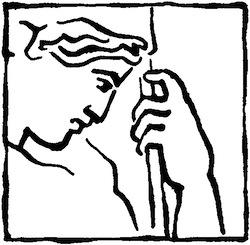Stel een vraag
Met het formulier hier onder kunt u contact op nemen met boekwinkel Scrinium.
DIJK, J.G.M. van, - Ainoi, Logoi, Mythoi. Fables in Archaic, Classical, and Hellenistic Greek Literature. With a Study of the Theory and Terminology of the Genre.
De vraag gaat over de volgende titel:
| Schrijver: | DIJK, J.G.M. van, |
|---|---|
| Titel: | Ainoi, Logoi, Mythoi. Fables in Archaic, Classical, and Hellenistic Greek Literature. With a Study of the Theory and Terminology of the Genre. |
| ISBN: | |
| Uitgever: | Brill, Leiden (...), 1997 |
| Bijzonderheid: | XXI,687p. Original grey gilt titled cloth. Lower edge slightly stained. Diss. Katholieke Universiteit Nijmegen. |
| Prijs: |
€ 175,00
€ 4,50
|
| Meer info | 'Van Dijk has set himself a very specific and clear task: to inventory and analyze the evidence for Aesopic fables in extant Greek literature of the archaic, classical and Hellenistic periods, together with a survey of the terminology associated with the fable over a much longer period of time, extending through late antiquity. As a resource book, van Dijk's book is invaluable, providing copious primary texts and translations, a thorough bibliography and useful review of the literature, along with indexes and cross-reference tables linking his materials to the numeration system in Perry's Aesopica. Approximately half of the book's considerable bulk is devoted to this collection of primary sources and reference materials. The book is an essential starting point for the study of any Aesopic fable that is cited or alluded to in a work of Greek literature (although it must be noted, there are somewhat less than 100 such fables, only a fraction of the corpus of ancient Aesopica). In terms of his coverage of individual fables, van Dijk is meticulous in reporting primary sources for the fable, along with all relevant ancient testimony. But while van Dijk devotes careful attention to each and every one of these literary sources and ancient testimonies, his coverage of the Aesopic fable as a genre is less comprehensive. By focusing exclusively on the literary aspects of the Aesopic fable, van Dijk neglects to make any observations on the Aesopic fable as a folkloristic or extra-literary phenomenon. This is a considerable limitation on the theoretical portion of his argument, and it hampers any conclusions he would offer about the genre as a whole.' (LAURA GIBBS in Bryn Mawr Classical Review 98.5.18). |
| Boek bekijken | |

De verkoper zal binnen 3 werkdagen contact met u opnemen om de koop verder af te handelen.
